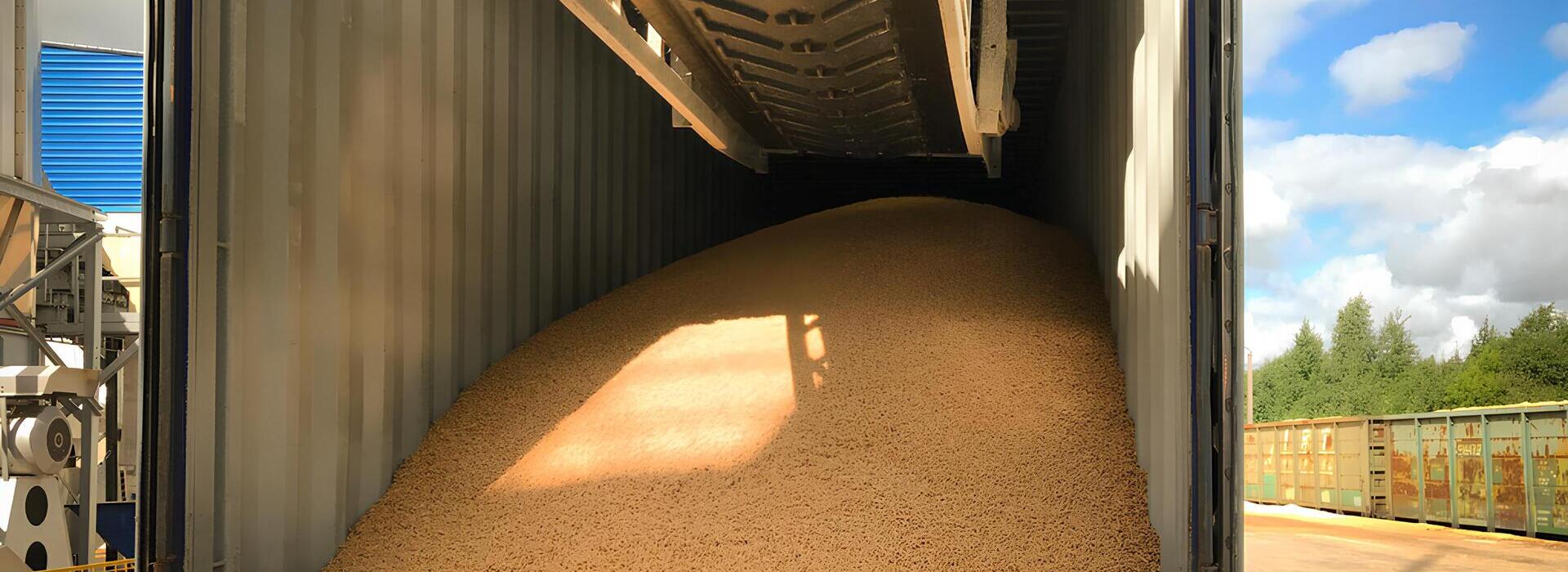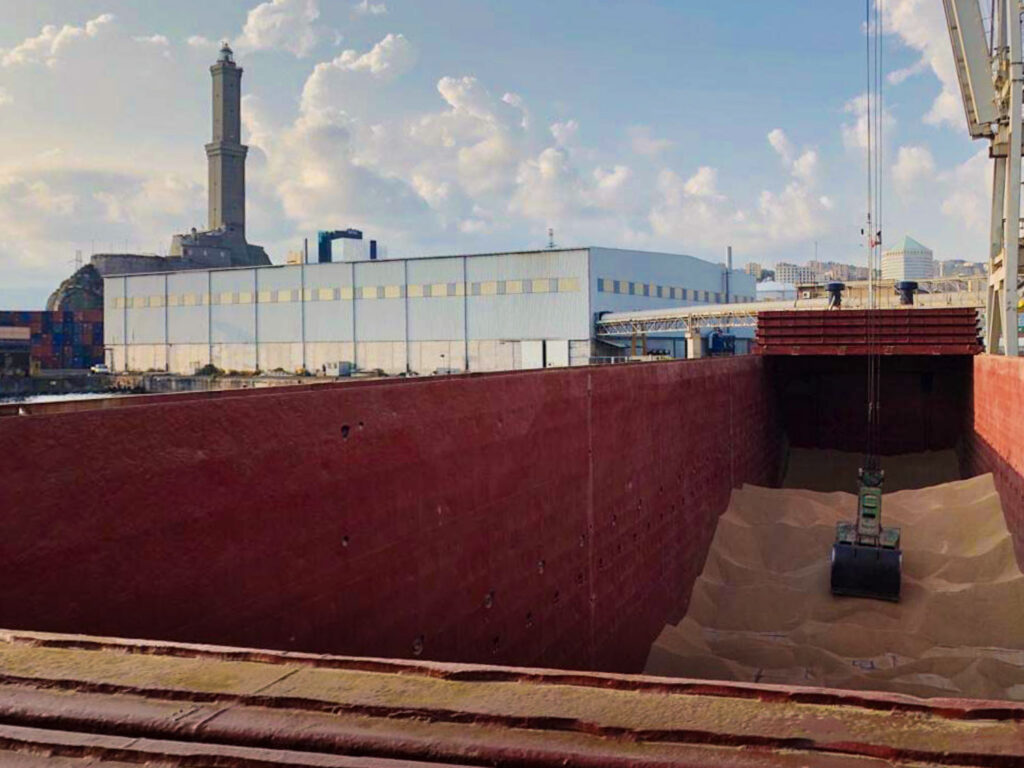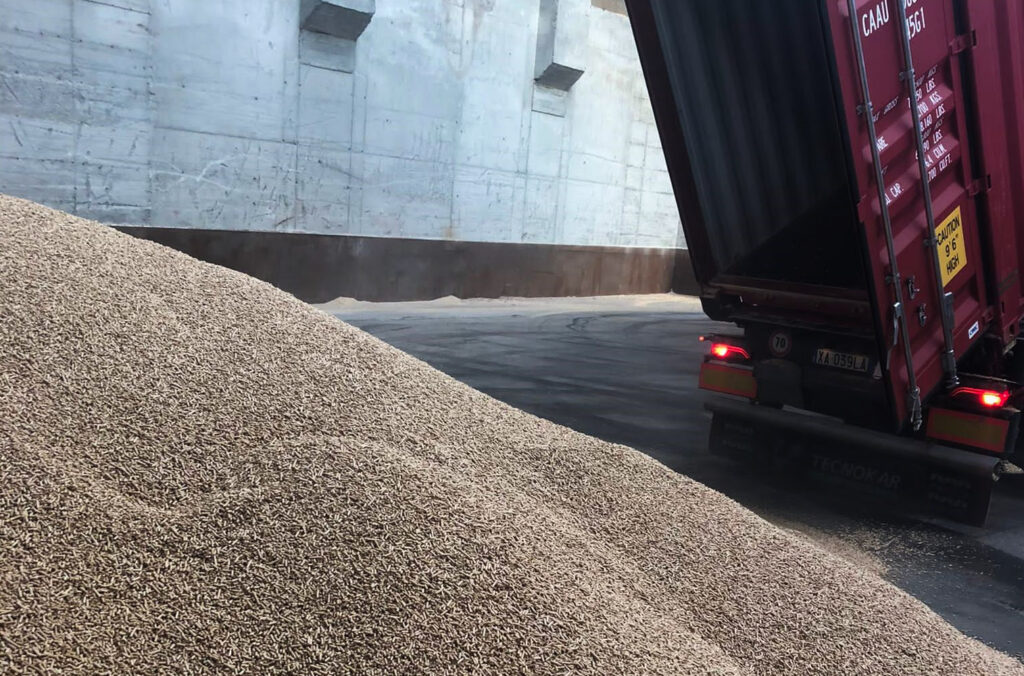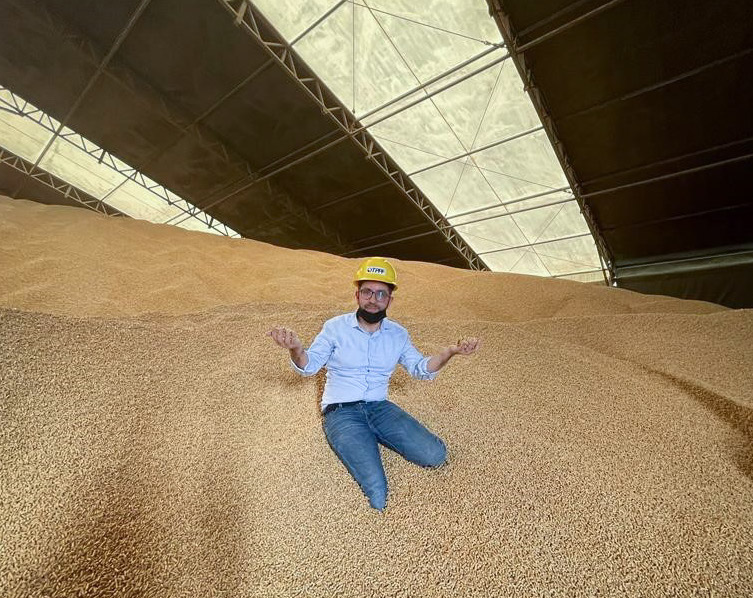
CASE STUDY
PSA Italy for CM Biomass, leader in the pellet industry
We would like to share the experience of CM Biomass, one of the companies using the services of the PSA Italy terminals, a leader in pellet production for industrial and domestic use, selling over 4.400.00 tonnes of wood pellets each year. Here is how our chat went with Paolo Moscone, Head of Italian Operations for CM Biomass, when we talked about sustainability, logistics and future prospects.
How was CM Biomass born and what role does it play within the CM group?
CM Biomass Partners A/S was born in 2009 in Denmark in response to the increasing demand for new renewable energy solutions in accordance with European directives. The company immediately benefited from the significant synergies with the CM Group, which for several years had already been involved in trading other commodities, in shipping and in terminal activities. Today, CMB moves over 4.4 million tonnes of wood pellets per annum and is one of the largest operators in this sector.

Which are CM Biomass’s main products?
Ninety percent of the volume handled is represented by wood pellets, the rest by other renewable solid fuels, such as sunflower seed pellets and the residue from olive oil pressing.
What are the main markets for your products?
The industrial market – which includes both the old electricity power stations, formerly fuelled by coal but now converted to pellets, and “energy intensive” industrial plants – and the premium/residential market linked to the consumption of pellets for domestic heating.
What are the market prospects for this year?
The year 2022 was very particular with enormous pressure on prices that pushed the market to first reach record levels in the summer, and then later caused a constant decrease in price, which is still ongoing. This year, 2023, presents itself as very uncertain; the aim is to consolidate the growth in several new markets that began in 2022. In this context, the flexibility and diversification of sourcing, and the capacity to guarantee supply to the market will certainly be crucial.

What is the significance of sustainability in your value chain?
Sustainability is this market’s main driver: by its nature the product must be sustainable and its life-cycle, from production to transport and finally to consumption, must produce a clear environmental advantage, in comparison to other fuel types.
What are the keys to global logistical success in a sector that is seasonal?
The most important objective of CM Biomass is to balance supply and demand in both upstream and downstream marketing. In order to reach this objective, it is crucial to use various logistic systems, from trucks and railways to containers, barges and bulk ships. Moreover, CM Biomass can count on over 40 warehouses/port terminals, which support the distribution network in various countries and guarantee supply in a seasonal market.
What percentage of your commercial traffic is divided between the ports of north and south Europe?
At the moment, the percentages are decidedly weighed on the side of northern Europe (95% compared to 5% in southern Europe) given that the main industries are situated in the UK, ARA (Amsterdam-Rotterdam-Antwerp) and Scandinavia.
What are the main logistical challenges you have to overcome?
Competitivity and reliability are fundamental principles for attaining objectives and achieving constant growth. In a market where the product does not have a high intrinsic value, logistical choices and choice of partners is determinant.

Paolo Moscone
What advantages do the PSA Italy terminals offer to your logistic strategy?
Reliability and the PSA infrastructures at Genova represent an important added value, which allow us to consider Genova to be our main hub in the Mediterranean.
In what ways do the intermodal services of PSA Italy support your sustainability objectives?
The presence of partners who pay attention to environmental sustainability, undertaking constant research on the reduction of CO2 emissions, represents an important distinction that guides our choices.